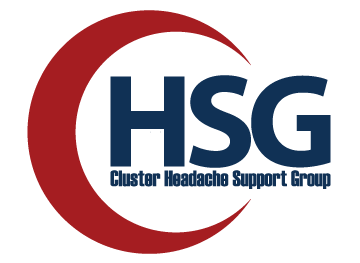Peer-reviewed medical journal articles on cluster headache and related conditions.
We have tried to link directly to PDF copies of articles where available for online viewing or download. In some cases, links may be directed to the Abstract only. These articles may require a subscription or one-time purchase in order to access to the journal article. Fees vary. For free or low-cost access to journal articles, please visit patientAccess, PubMed Central, or SpringerLink.
CHSG is not responsible for any fees incurred nor does it receive any payment, royalty, commission, or other compensation as a result of these links.
Article topics
- Randomized controlled trial of the CGRP receptor antagonist telcagepant for migraine prevention September 9, 2014In this randomized, double-blind, placebo-controlled, multicenter trial (ClinicalTrials.gov NCT00797667), patients experiencing 3–14 migraine days during a 4-week baseline were randomized to telcagepant 140 mg, telcagepant 280 mg, or placebo twice daily for 12 weeks. Efficacy was assessed by mean monthly headache days and migraine/probable migraine days (headache plus ≥1 associated symptom). The trial was terminated following ...
- Anti-CGRP antibodies: a new approach to migraine prevention August 10, 2014In The Lancet Neurology, David Dodick and colleagues1 introduce monoclonal antibodies into the specialty of primary headache therapy. They report findings from a randomised, placebo-controlled, double-blind, phase 2 clinical trial of LY2951742, a neutralising humanised monoclonal antibody against calcitonin gene-related peptide (CGRP), for migraine prevention. The subcutaneous administration of LY2951742 once every 2 weeks reduced ...
- Safety and efficacy of LY2951742, a monoclonal antibody to calcitonin gene-related peptide, for the prevention of migraine: a phase 2, randomised, double-blind, placebo-controlled study August 10, 2014These results provide preliminary evidence that LY2951742 might be beneficial in migraine prevention and provide support for the role of calcitonin gene-related peptide in the pathogenesis of migraine. Further controlled studies are needed to assess the safety and efficacy of monoclonal calcitonin gene-related peptide antibodies for the preventive treatment of migraine.
- Anti-CGRP antibodies for migraine turn industry heads August 7, 2014In June, Teva of Petach Tikva, Israel, paid $200 million in cash and $625 million in future milestones to acquire Labrys Biologics of San Mateo, California. The Israeli drug maker wanted to get its hands on LBR-101, the biotech’s preventive treatment for migraines and its only asset. LBR-101, a humanized monoclonal a…
- Monoclonal Antibodies for Migraine: Preventing Calcitonin Gene-Related Peptide Activity May 1, 2014Calcitonin gene-related peptide (CGRP) is a well-studied neuropeptide of relevance for migraine pathophysiology. Jugular levels of CGRP are increased during migraine attacks, and intravenous CGRP administration induces migraine-like headache in most individuals with migraine. Several CGRP receptor antagonists (CGRP-RAs) were shown to be effective for the acute treatment of migraine, validating the target for the ...
- Evaluation of Efficacy of Intranasal Lidocaine for Headache Relief in Patients Referred to Emergency Department January 22, 2014Headache is a common complaint for emergency visits. Common drugs used in relief of headache are opioids and their agonists and antagonists, ergot alkaloids, and nonsteroidal anti-nflammatory drugs(NSAIDs). Lack of appropriate medications or serious side effects of available drugs, motivated us to perform the study for evaluating the efficacy of intranasal lidocaine on different types ...
- Update on therapies for cluster headache January 10, 2014Cluster headache is one of the primary headache disorders. It is considered the most severe headache syndrome known to humans. In most instances, this disorder is readily treatable when the correct medications are utilized at the correct dosages. Cluster headache treatment involves abortive, transitional and preventive therapy strategies.
- Clinical and Genetic Aspects of Cluster Headache January 9, 2014Cluster headache (CH), a primary neurovascular headache syndrome, is characterized by recurrent, unilateral, short-lasting attacks of excruciating pain in the temporal and/or orbital region. The pain is considered one of the most severe pain conditions known to humans. Compared with the general population, first-degree relatives of probands with CH have a significantly increased risk of ...
- Cluster headache and the hypothalamus: causal relationship or epiphenomenon? January 9, 2014Typical clinical features of cluster headache (CH) include circadian/circannual rhythmicity and ipisilateral cranial autonomic features. This presentation has led to the assumption that the hypothalamus plays a pivotal role in this primary headache disorder.
- The Pipeline in Headache Therapy September 1, 2013Migraine is a common, disabling, neurovascular disorder characterized by episodic attacks of head pain and associated disability plus systemic autonomic and neurologic symptoms. The advent of the triptan class of medication in the 1990s revolutionized the acute treatment of migraine, but many migraineurs do not respond optimally or at all to triptans, have intolerable adverse ...

